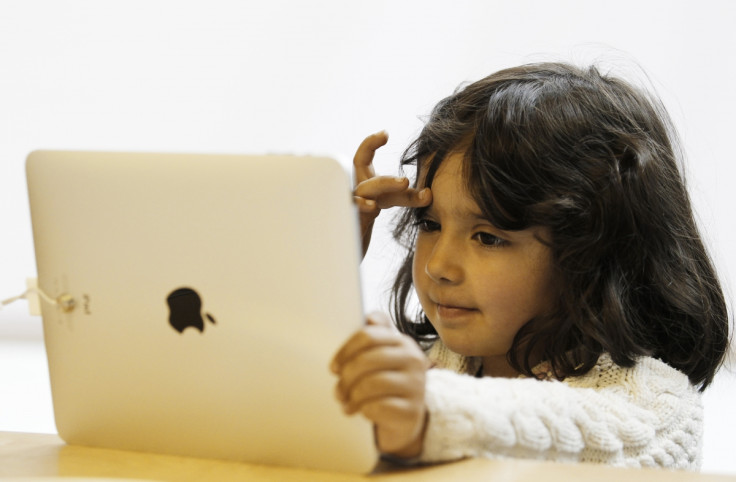US experts just halved the maximum screen time recommended for under 5s
Child psychiatrist warns children under 2 should not be exposed to any TV or computer screens.

Children under the age of five should not spend more than an hour a day in front of a screen, US experts have warned. Researchers reduced the maximum recommended screen time by half after a review of new evidence looking at the impact of digital technology on children's development.
A policy statement published by the American Academy of Paediatrics said that while research into the impact that interactive media has on development "remains limited", existing literature highlights health concerns for young children.
"Multiple developmental and health concerns continue to exist for young children using all forms of digital media to excess. Evidence is sufficient to recommend time limitations on digital-media use for children two to five years to no more than one hour a day to allow children ample time to engage in other activities important to their health and development and to establish media viewing habits associated with lower risk of obesity later in life," the statement said.
Commenting on the report, child and adolescent psychiatrist Hayley van Zwanenberg agreed with the recommendations. She said the prolific use of smartphones among adults now extends to pre-school children, with parents using TVs, iPads and laptops as "digital nannies".
Advice from the AAP:
- Avoid all digital media use in children below two years old other than video calls
- Between two and five, limit screen time to one hour a day
- Chose high-quality programmes and engage with the child while they are watching – do not let them use media alone
- Avoid fast-paced programmes and those with distracting or violent content
- Turn off technology when not in use
- Avoid using media as a means of calming the child. This could cause problems developing their own emotional regulation
- Test apps before the child uses them and play together, asking for feedback from them
- Keep bedrooms and mealtimes media-free
- No screen time for at least an hour before bed
"There is ample evidence to demonstrate the negative effects of screen time on older children, particularly on those using screens for more than three hours a day; these include structural and functional brain-imaging changes, increases in emotional distress and higher rates of anxiety and depressive symptoms, as well as lack of sleep," she said.
"The pre-school years are particularly vital for developing non-verbal skills that young people miss completely when on screens. Although research is limited currently in the pre-school age group, I would advise parents to take even greater precautions in this age group than in school age children, as the findings in older children are likely to be similar for younger children and will probably be magnified.
"Screen time stimulates the 'reward centre' of pre-school children's brain (the nucleus accumbens), acting as a digital drug, so they will want more and more of it, but young children should be active, investigating life in the real world and having lots of social interaction to develop healthily, physically and mentally."
At present, the UK has no official guidelines for parents on the maximum amount of screen time for children. However, the AAP suggests limiting the amount of time spent using digital technology, while advising parents to also cut back so children do not copy their behaviour.
© Copyright IBTimes 2025. All rights reserved.






















